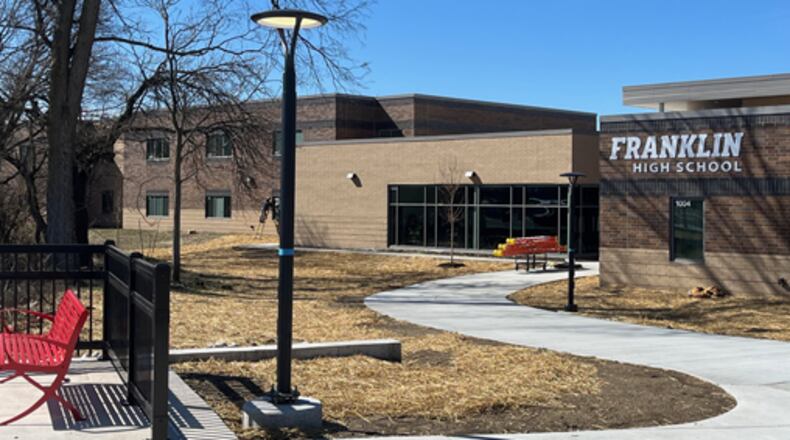“I was very disappointed,” said board President Lori Raleigh. “We’re here to educate our students. We’re going to move forward. The community has spoken and said ‘no.’ But there will be big changes ahead.”
Raleigh said the board has only asked voters twice since 2004 for additional day-to-day operating money, while other districts are the ballot more frequently. While board members understand how inflation is affecting taxpayers, they also said there was a lot of “misinformation” on social media. Raleigh said if people have questions, they should come to board meetings to get the answers.
Board member Chris Sizemore said, “there are a lot of nasty, hateful people on Facebook.” Sizemore said the school board cannot give themselves a raise, which is set by state law, as he responded to incorrect information on the social media platform. He said the last raise board members received was in 2007.
“I was disappointed with the outcome of the levy,” said board member Andrew Fleming. “We need to make some tough decisions. We really wanted this.”
He said that student achievement in the district is still high, the district has a phenomenal staff, students care and the schools give a lot.
Board member Bob Knipper said some voters don’t understand how schools are funded in Ohio and that the board cannot use funds designated for capital improvements or new building construction for operating costs such as teacher salaries. He also pointed out in 2014, the board promised not to come back to the voters for new operating money for 10 years, which the board delivered to taxpayers.
Voters in the Franklin school district overwhelmingly rejected the tax levy by a final, unofficial vote of 67.9% against to 32.1% for, according to the Warren County Board of Elections. The levy failed in all 17 precincts that cover the Franklin school district, according to the elections board.
Superintendent Michael Sander said, “It was a tough loss. I think the current economy with income not keeping up with inflation was the main reason.”
Sander said that he did not think the schools have lost community support, adding “there’s a limit of what you can do. When I was going door to door, the message was clear that money was tight.”
He said with property taxes going up in surrounding counties, it confused people who worry about local taxes and not knowing if they can pay for it.
Sander said budget cuts are going into effect at the end of the school year. At Tuesday’s meeting, the board approved the nonrenewal of contracts for nine teachers as required by union contract. He said these teachers knew a contract nonrenewal was a possibility when offered the job after the first day of school. Whether they return next school year will be determined by the state of budget. Sander emphasized the contract non-renewals “were not because of performance. They all did a good job for us.”
Some of those teachers may be invited back to replace retiring teachers or after the district looks at its enrollment and budget in the coming weeks.
“We want to do the least harm to educate children and to keep their education top notch,” Sander said. “We can’t offer everything. We’ve had the same income since 2014 and we have to adjust. We want to do this as soon as possible because the unknown makes people nervous.”
Prior to the levy campaign, the district said the result of a failed levy would be 13 jobs being lost, including one administrator, seven teachers and five non-teachers. In addition, Anthony Wayne Elementary School would close. In addition, there would be increases in pay-to-participate fees and increased class sizes too.
Other changes will be to determine a reconfiguration of elementary grades throughout three buildings as Anthony Wayne and Pennyroyal elementary schools will close.
Franklin Schools made some budget cuts this year, announced after the November 2022 levy failed. The cuts totaled $1.1 million.
Franklin schools’ cash reserve has been declining because the district has been increasingly deficit-spending the past three years — a $474K deficit in 2020-21, then $751K the next year, then a big jump to a $2.2 million deficit in 2022-23. District spending increased by roughly the same 4.5% each of the past two years, but revenue was unusually flat in 2022-23, leading to the larger deficit.
In its most recent forecast, the district projected revenue to rise again to $38.4 million this school year and $39.8 million next year. Spending is forecast to rise another 3% this year, with nearly all of the recent spending increases tied to salary and benefits.
About the Author

